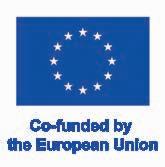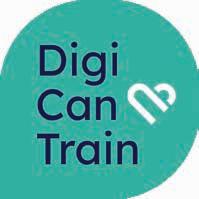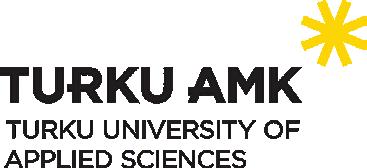Digital skills for cancer care

eHealth Technology has an important role to play in modern cancer care, yet digital skills are not traditionally a core part of healthcare training. Kadri Kööp , Clara Madrid Alejos , Jenna Poraharju and Orlaith Hernon tell us about the work of the DigiCanTrain project, an initiative which aims to support healthcare professionals and help them develop their digital skills.
A variety of digital tools are available today to support cancer care in prevention, diagnosis, treatment, monitoring, and patient management. For example, electronic health records (EHRs) facilitate seamless information sharing among healthcare teams, telemedicine enables remote consultations, and digital decision-support systems assist clinicians in treatment planning. However, digital skills are not traditionally a core part of health care professionals’ training, and many are relatively unfamiliar with new technologies. “Many healthcare professionals say that they lack confidence in this area,” says Kadri Kööp, a researcher at the Tallinn Health Care College in Estonia, part of the team behind the EUbacked DigiCanTrain project. This is an issue the project is working to address through providing education and training programmes to professionals working in cancer care. “Healthcare professionals need to know how to use these tools, and how to assess their quality,” stresses Clara Madrid Alejos, a project manager at the Catalan Institute of Oncology (ICO), one of the 14 partners in the project consortium.
DigiCanTrain project
This is a goal the project team is working towards, starting from an understanding of what the healthcare professionals themselves need, and researching how technology can
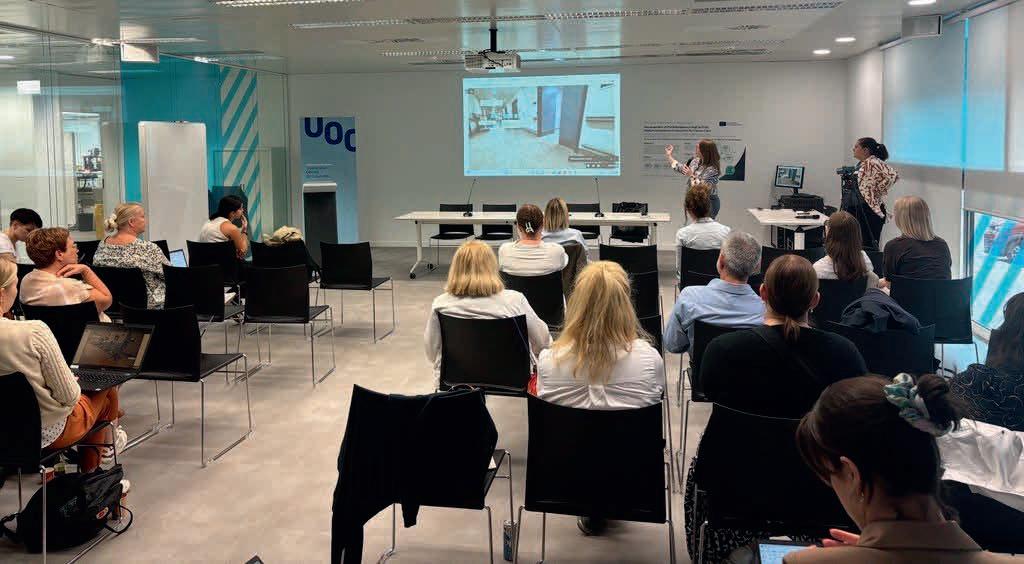
be harnessed to improve cancer care. A number of competence areas have been identified based on a detailed literature review and expert workshops, helping shape the development of the training programme. “We have training modules, as well as broader modules about communication,” outlines Kööp. The aim is to equip healthcare professionals with the digital skills that are required to use new eHealth technologies effectively, which spans a wide range of areas. “For example, AI has been used to improve the detection of breast cancer in mammograms. Telemedicine and remote consultations are very useful for reaching people in remote areas,” continues Kööp.
According to Orlaith Hernon, a lecturer in the School of Nursing and Midwifery at the University of Galway, Ireland, technology can play an important role in enhancing communication within cancer care. It can help facilitate better interactions between patients and healthcare professionals, especially in remote areas far from hospitals or cancer centres. Additionally, it can assist in communication among the interdisciplinary team, promoting collaboration and coordinated care. “By promoting seamless communication among various professionals, these tools contribute to a more holistic, patient-centered approach, ensuring that care is comprehensive, personalised, and aligned with the patient’s

needs and preferences,” says Madrid Alejos. Modern technologies can be useful in optimising patient engagement, which is another important consideration in the project. Alongside healthcare professionals, patients also need to be convinced about the benefits of new technologies, and to trust in their effectiveness. “It’s important not only to improve the quality of the treatment, but to look at the whole continuum of cancer care,” stresses Madrid Alejos. Technology is applied extensively across the entire continuum, and new innovations continue to emerge. “In Europe, digital services in cancer care, like digital care pathways, symptom-tracking apps, and eHealth portals, help patients access support, monitor their health, and stay connected with healthcare providers,” says Jenna Poraharju, Doctoral researcher at the University of Turku in Finland. The training developed in the project is designed to teach healthcare professionals to effectively integrate new technologies into their practice, boosting their confidence and at the same time building their own trust in innovative methods, which can then encourage them to further develop their digital skills. “Five modules have been
“With

education and training programme is central to this, says Madrid Alejos. “We give the knowledge to the trainers, who then pass it on to participants in hospitals. The trainers can then adapt and modify the content,” she outlines. This is part of the wider goal of moving towards more personalised care that reflects individual needs, and digital technology will have an important role to play. “With digital technology we can bring together information about patients, then treatment can be adapted to reflect an individual’s lifestyle or personal preferences,” continues Madrid Alejos.
“This also means we can reduce unnecessary interventions, which in turn reduces sideeffects and contributes to lower costs.”
Cost of healthcare
The wider backdrop to the project’s work is the financial pressures facing healthcare systems across Europe in line with changing demographic profiles, with more and more people living for longer, sometimes with complex medical needs. Effective use of technology could help reduce the costs of healthcare, while also opening up new possibilities in terms of identifying
digital technology we can bring together information about patients, then care can be adapted to reflect an individual’s lifestyle or personal preferences.”
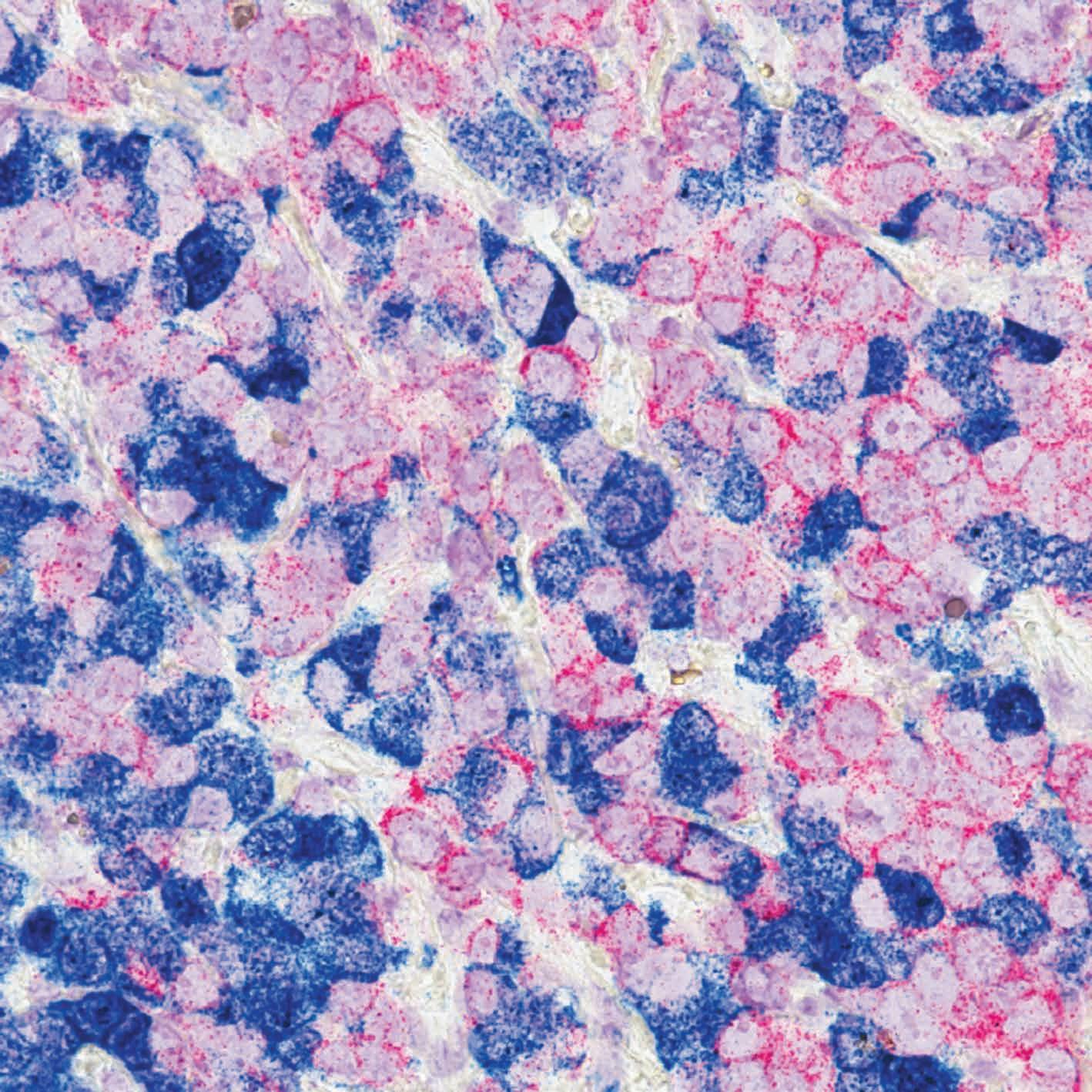
DigiCanTrain
Digital Skills Training for Health Care
Professionals in Oncology
Project Objectives
The DigiCanTrain project aims to design, pilot, and evaluate the DigiCanTrain education and training programme for clinical and non-clinical healthcare professionals working in cancer care. The ultimate goal is to improve access to continuing professional education, increase digital skills, and the use of eHealth technology of clinical and non-clinical health care professionals working with people affected by cancer.
Project Funding
Countries: Belgium, Finland, Greece, Ireland, Romania, and Spain. This project has received funding from the European Union’s EU4Health programme under Grant Agreement No. 101101253.
Project Partners
https://digicantrain.turkuamk.fi/contact-us/
Contact Details
Virpi Sulosaari
DigiCanTrain
Turku University of Applied Sciences
T: +358 44 907 4569
E: kirjaamo@turkuamk.fi

: #digicantrain
W: https://digicantrain.turkuamk.fi/ W: https://health.ec.europa.eu/noncommunicable-diseases/cancer/europesbeating-cancer-plan-eu4health-financedprojects/projects/digicantrain_en
Jenna Poraharju, Orlaith Hernon, Clara Madrid Alejos, and Kadri Kööp

developed as part of the curriculum. There are core modules that all learners must take and then they can choose their professionspecific modules. Each learner’s path is dependent on their professional background. The programme is designed for two groups, Trainers and Participants. The Trainers will complete the programme first and they will then support Participants throughout the programme,” says Hernon. “This training will not only allow healthcare professionals to deepen their knowledge in their own specialty but also provide them with the opportunity to explore modules from other disciplines. By doing so, participants will gain a better understanding of the roles and approaches of other professionals involved in cancer care, fostering inter-professional collaboration and a more integrated approach to patient care.” explains Madrid Alejos. There are also variations in the prevalence of different forms of cancer across Europe, so the project team are keen to ensure that the training and content supports the development of skills that can be adapted to the specific circumstances of each country. The ‘training the trainers’ part of the
populations with an increased risk of certain conditions. “For example, the Estonian Biobank holds genomic data on more than 20 percent of the national population, it’s a large database. It’s now possible to map the genomic risk factors associated with different forms of cancer, then get in contact with people with high risk factors,” outlines Kööp. The scope of the training could potentially be extended in future, but at this stage the priority is more to assess the results of the pilot phase. “We will gather feedback after every module, and after the pilot phase,” says Kööp.
Researchers are working to evaluate this feedback, which can then guide the ongoing development of the training. “We want to help healthcare professionals gain familiarity with eHealth technologies, to a point where they view them as a kind of collaborative partner. Healthcare professionals need to apply their own critical thinking and analysis, not over-rely on technology,” says Kööp. Pull quote: With digital technology we can bring together information about patients, then care can be adapted to reflect an individual’s lifestyle or personal preferences.



Jenna Poraharju, RN, MHSc and Doctoral researcher at the University of Turku, Finland. She is specialized in Health Pedagogy within Nursing Science and has experience of empowering learning environments in digital pedagogy.
Orlaith Hernon, RGN, RCN, RNT, BSc, PgDip, MSc, PhD is a lecturer in the School of Nursing and Midwifery at the University of Galway, Ireland. Her primary research area includes educational research and the use of educational technologies and was awarded a PhD in the area of learning technologies.
Clara Madrid Alejos Psychologist, MSc, and PhD candidate at the University of Barcelona, specializes in e-learning within Educational Psychology.
Kadri Kööp, MSc works as a lecturer at Tallinn Health Care College. Her research and teaching areas are research methodology, lifestyle counseling, and individual and professional development of nurses.
